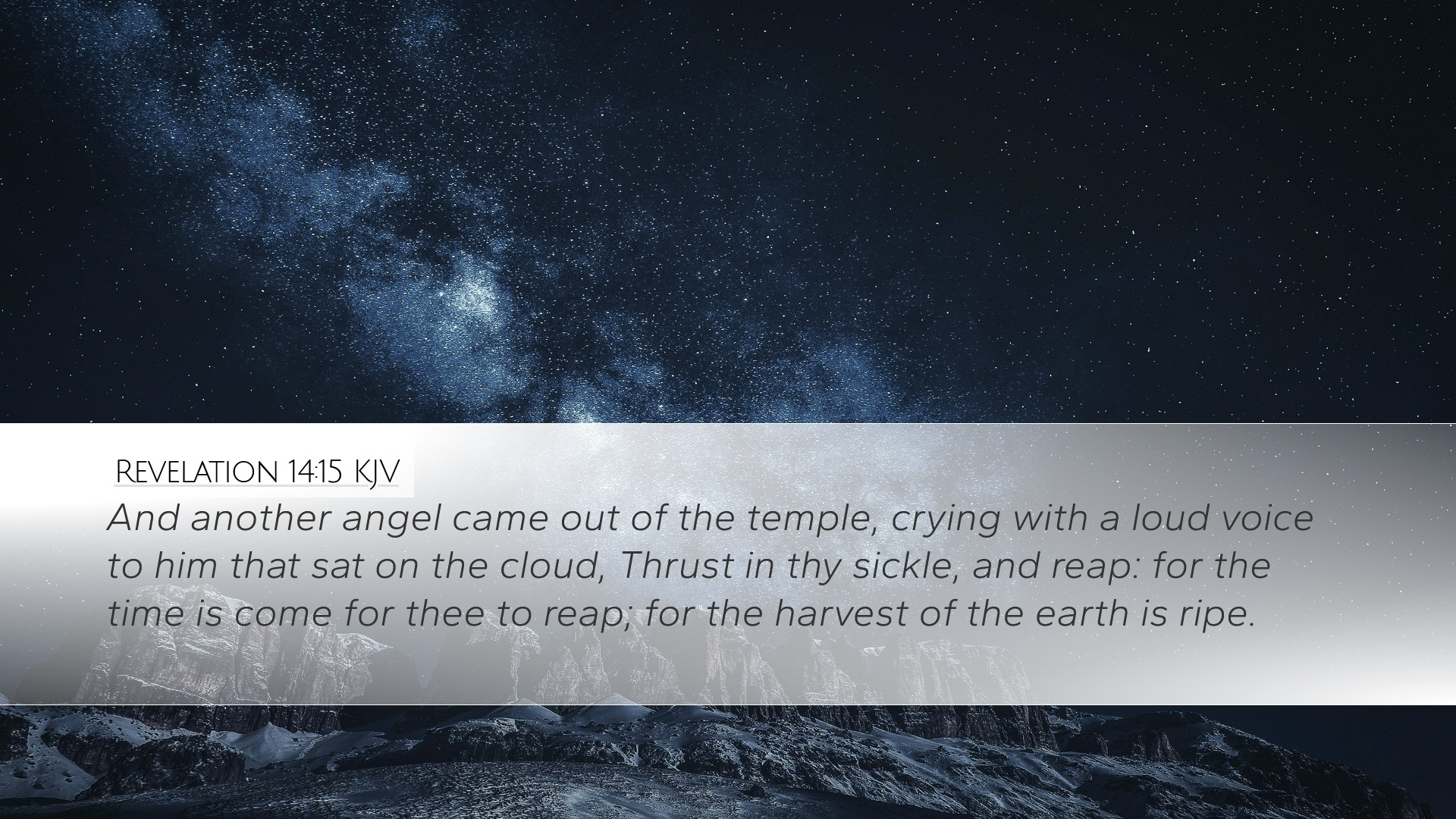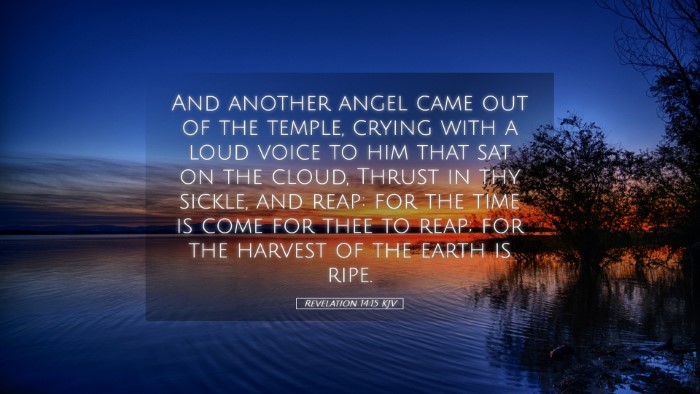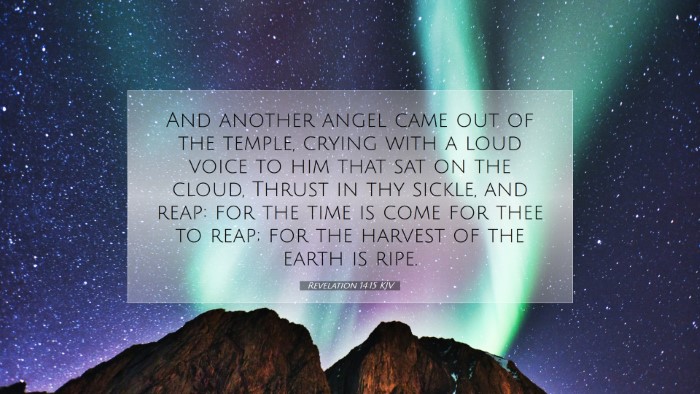Commentary on Revelation 14:15
Verse: Revelation 14:15 - "And another angel came out of the temple, crying with a loud voice to him that sat on the cloud, 'Thrust in thy sickle, and reap: for the time is come for thee to reap; for the harvest of the earth is ripe.'
Introduction
The passage in Revelation 14:15 is rich in theological significance and apocalyptic imagery. It encapsulates themes of divine judgment, hope, and the fulfillment of God's promises. Throughout biblical history, harvest imagery is often employed to symbolize divine intervention in human affairs. This commentary synthesizes insights from renowned public domain theologians, thus offering depth pertinent to pastors, students, theologians, and Bible scholars.
Exegesis of the Text
In order to understand Revelation 14:15 fully, we must analyze its components:
- Another Angel: This indicates a continuation of the divine message being relayed. It also signifies the mediatorial role of angels in delivering God's directives.
- Came Out of the Temple: The temple serves as the dwelling place of God. The emergence from it signifies the authority and urgency of the command. It emphasizes that the angel’s message originates from God Himself.
- Crying with a Loud Voice: The loudness denotes the importance of the message being shared. It serves to grab attention, highlighting the seriousness of the impending judgment.
- Thrust in Thy Sickle, and Reap: The sickle is a metaphor for harvest. It symbolizes the reaping of souls, whether for salvation or judgment. It indicates that the appointed time for the harvest has arrived, representing the culmination of God's plan.
- For the Harvest of the Earth is Ripe: The notion of ripeness suggests readiness for action. It portrays the condition of humanity at the time of divine judgment - ready and due for either salvation or condemnation.
Theological Insights
This verse presents us with several critical theological insights:
- Divine Sovereignty: The angel announcing the harvest signifies God’s control over the destiny of the earth. It presents a view of history where God is aware of and working towards His ultimate justice.
- Judgment and Hope: While the imagery suggests judgment, it also holds hope for believers expecting divine resolution to worldly chaos. The righteous harvest serves as a reminder of God’s protective and redemptive work.
- The Urgency of Repentance: The readiness of the harvest is a call to respond. As the time for reaping approaches, individuals are prompted to evaluate their relationship with God.
Commentaries by Notable Theologians
Matthew Henry
Matthew Henry highlights the significance of the angel’s role, noting that the angel acts as a harbinger of judgment, illustrating that God’s timing is absolute. He draws parallels between this passage and the parables of the harvest in the gospels, stressing that God's patience is not overlooked but is followed by assured accountability.
Albert Barnes
Albert Barnes emphasizes the clarity of God’s message through the action of the angel. He posits that the “time” referred to is indicative of God’s divine plan manifesting in history. Barnes discusses the dual aspect of harvest—those gathering for eternal life and those destined for destruction. He underscores that the apocalyptic vision urges believers to anticipate the hope of eternal glory.
Adam Clarke
Adam Clarke focuses on the symbolic meaning of the sickle and reflects on the agricultural practices of the time, which would resonate with his audience. He notes that the imagery of harvesting can refer to both the gathering of believers and the judgment of the wicked. Clarke articulates the comprehensive scope of harvest—wherein all of creation is called to account before God.
Practical Applications
For contemporary believers and church leaders, Revelation 14:15 offers several practical applications:
- Evangelism: Recognizing the urgency of the harvest should motivates the Church to engage actively in evangelism, reaching out to the lost with the good news of Christ.
- Personal Reflection: Individuals are encouraged to reflect upon their spiritual condition, ensuring they are prepared for the day of reckoning.
- Mission Fulfillment: The Church is called to fulfill the Great Commission, propelled by the understanding of a coming harvest, where lives are at stake.
Conclusion
Revelation 14:15 stands as a powerful reminder of God's sovereignty and the approach of His final judgment. The angel’s proclamation serves as both a warning and a comfort, urging believers to live with a consciousness of God's impending action in history. As we reflect on this passage, may we be moved to repentance, evangelism, and a deeper understanding of the profound truths within divine revelation.


